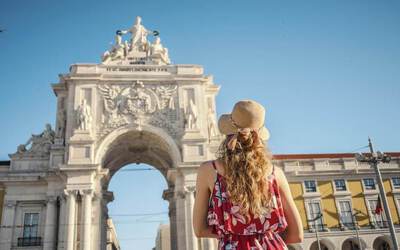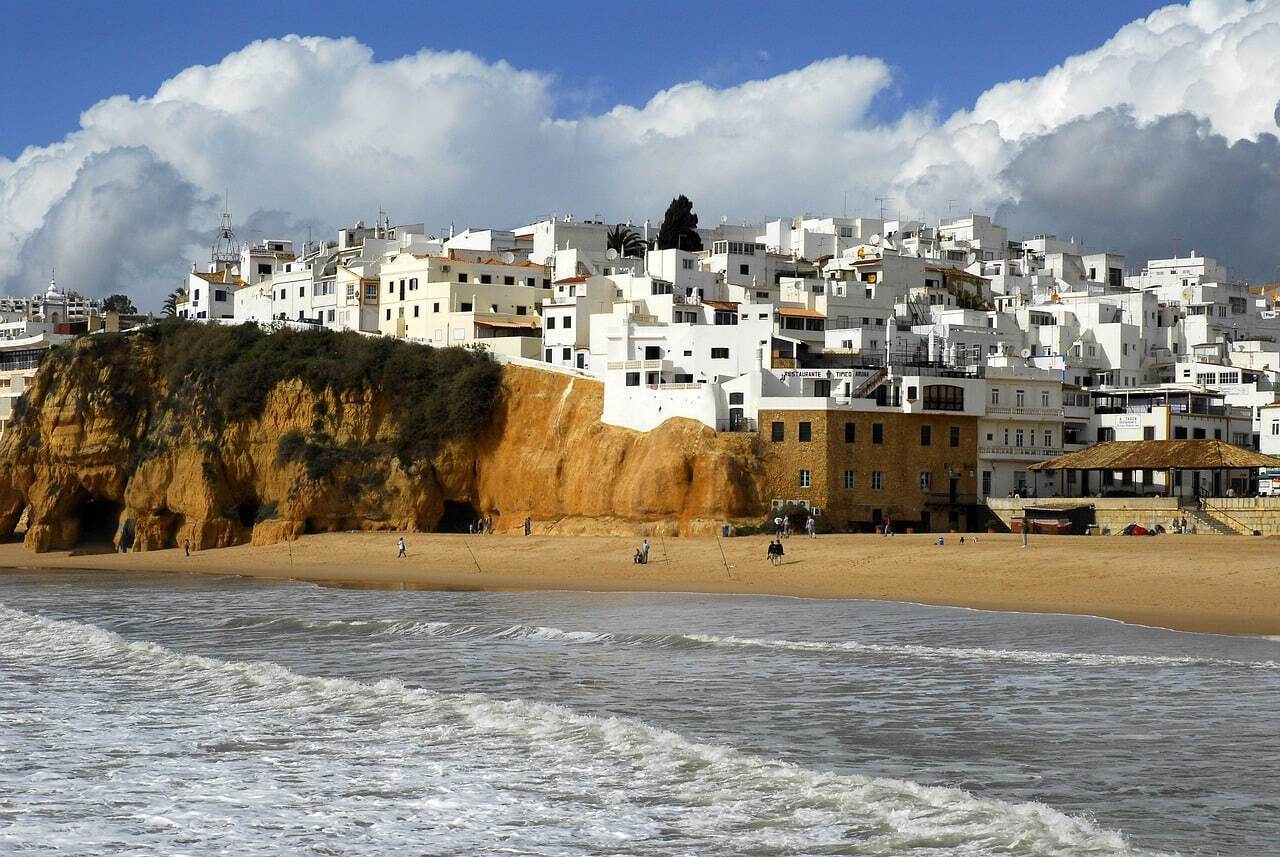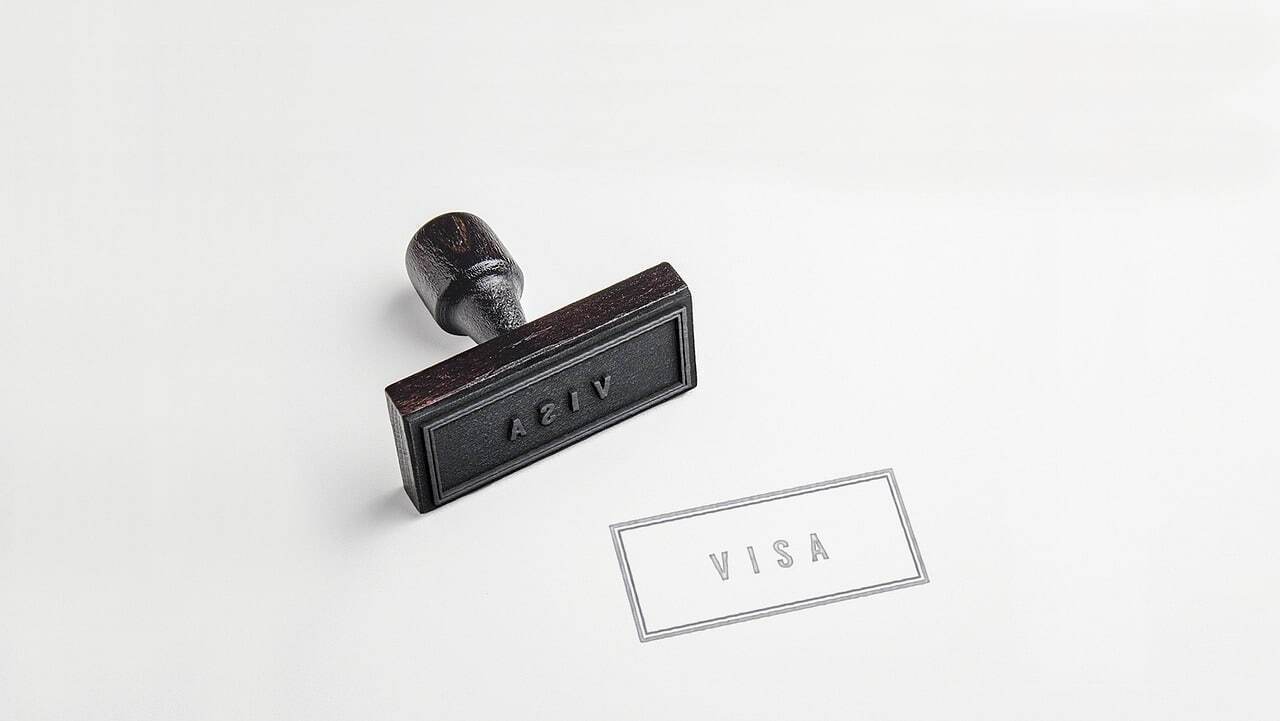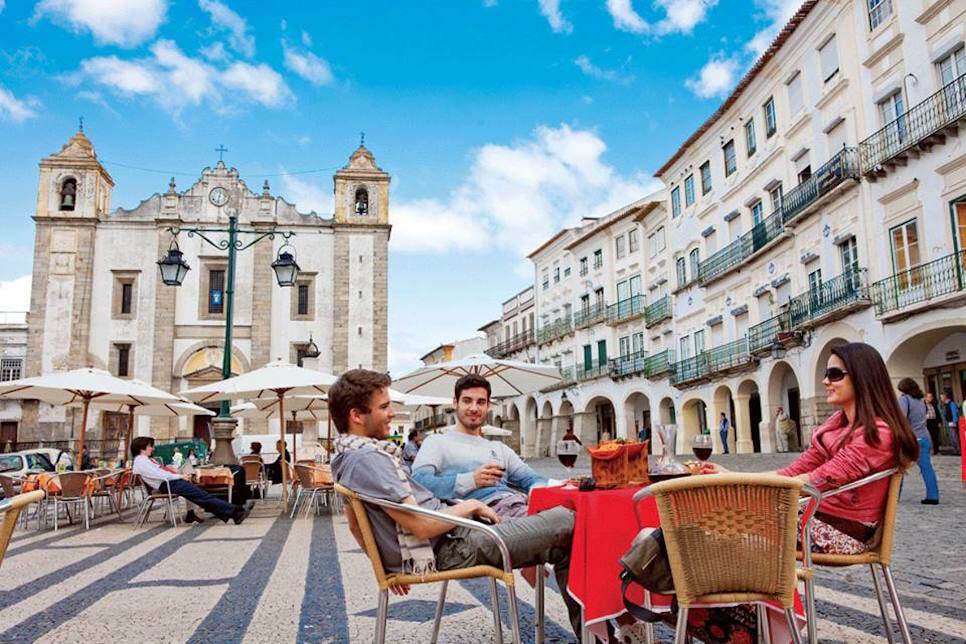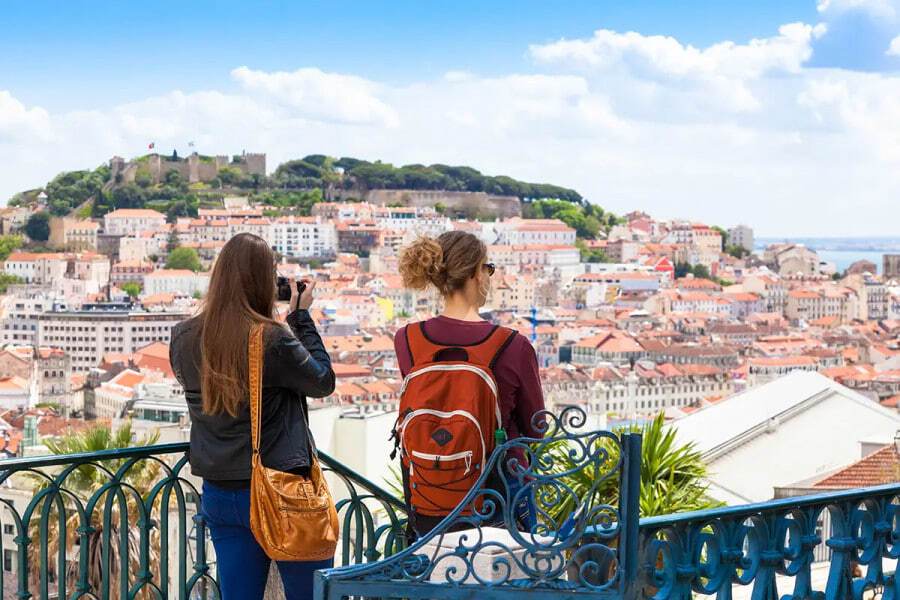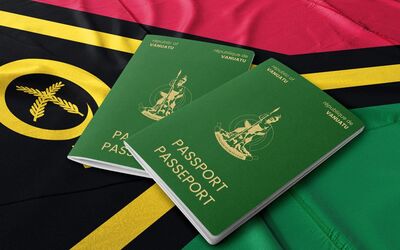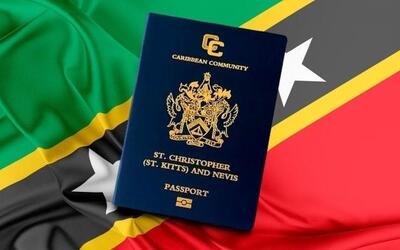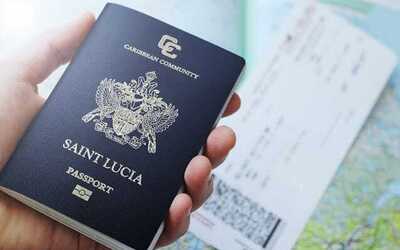Why Portugal? From safety and the ocean – to education and costs.
Portugal has been gaining popularity among expats for several years now. In 2023, the country issued a record 118,000 residence permits, which is 44.5% more than the previous year. Expats are attracted not only by 300 sunny days a year but also by a high quality of life, particularly safety: Portugal ranks 7th in the world in terms of safety according to the Global Peace Index. The education system is also performing well: five Portuguese universities are in the top 500 of the QS World University Rankings 2024, while the Nova School of Business and Economics ranks 15th globally in the Financial Times 2023 ranking of master's programs in management and 21st among the best business schools in Europe. In addition to this, five more Portuguese business schools are in the top 50 in the European ranking.
Of course, the ocean plays a significant role in Portugal’s popularity among digital nomads and expats. However, even without the beaches and surfing, there is plenty to do here. Portugal is a country with a rich cultural and historical heritage, with 17 UNESCO World Heritage Sites located across its relatively small territory.
Despite the rise in prices in recent years, Portugal remains a relatively inexpensive country compared to other European capitals, and certainly compared to popular immigration cities in the USA. Life in Lisbon is 66.2% cheaper than in New York, 28% cheaper than in Paris, and 24% cheaper than in Amsterdam. Moreover, with a Portuguese residence permit, you can visit all these cities visa-free, as residents of Portugal can travel to more than 180 countries without a visa, including the Schengen Area, the USA, and the UK.
Today, there are several types of visas through which you can come to Portugal and obtain a residence permit. What are the differences between them, who are they suitable for, and how much do they cost?
Golden Visa for Investors
Portugal is one of the six European countries where the residency or citizenship-by-investment program remains active. “Golden Visas” are often criticized by the European government due to concerns related to security and possible money laundering. In 2023, Portuguese lawmakers even considered closing the program, but in the end, the “Golden Visa” remained – albeit with new conditions.
Requirements: The entry threshold for the program is one of the lowest in Europe – starting from €200,000. This is a non-refundable contribution for the restoration of national heritage sites or to support the arts in low-density areas, which must be paid to one of the state-approved funds.
To obtain a “Golden Visa,” you can also:
- Open a company in Portugal, invest at least €500,000, and create at least 10 jobs.
- Invest €500,000 in an investment fund working with commercial organizations.
- Invest €500,000 in Portuguese scientific or technological projects.
Additional requirements:
- Be over 18 years old,
- Have a legal source of income,
- Have no criminal record.
Processing time: Processing takes from 18 to 24 months. The first residence permit is issued for 2 years and is renewed every 3 years.
Advantages:
- You can apply for the visa online.
- After five years, you can apply for Portuguese citizenship. This period is counted from the moment you submit your application for the “Golden Visa.”
- You only need to be in the country for 14 days every two years – ideal for those who want a fast track to EU citizenship but do not want to become a tax resident of Portugal or live in a specific country permanently.
Disadvantages:
- High entry threshold for options with returnable investments.
- Long processing times for applications.
For more details about the “Golden Visa” conditions, click here. It is the only Portuguese visa that allows for online application submission. For all other visas mentioned in this article, applications can only be submitted from the country where you hold citizenship or residence. People with a residence permit obtained through other types of visas are required to stay in Portugal for at least 187 days a year, which automatically makes them tax residents of the country.
D1. Work Visa
Perhaps the simplest and most straightforward visa – it is designed for people who have received a job offer from a Portuguese employer. Any salaried employee who plans to work under contract in Portugal can obtain a residence permit through this visa.
Requirements:
- An official employment contract with a Portuguese company for a minimum of one year.
- A certificate from IEFP (Institute for Employment and Vocational Training of Portugal) confirming that the vacancy was advertised but not filled by Portuguese or EU citizens (this must be provided by the employer).
- A signed housing rental agreement in Portugal.
Processing Time: You can apply for the D1 visa, arrive in Portugal, and obtain a residence permit within 6-9 months. The visa is issued for the duration of the contract, and it can be extended – either on the same basis or on a different one.
Advantages:
- No minimum income requirements.
- If you maintain your residence permit for five years, you can apply for Portuguese citizenship.
Disadvantages:
- Securing a job contract in Portugal may not be easy.
- Salaries in Portuguese companies are lower than the European average. The average annual salary in Portugal is less than €22,000, while the average annual salary in the EU is about €33,500.
D2. Visa for Business Owners in Portugal
This visa is for entrepreneurs who plan to open a business or engage in individual entrepreneurial activity in Portugal.
Requirements:
- Opening a company or individual enterprise in Portugal.
- Having Portuguese clients or customers.
- It is recommended to have at least €9,840 in savings in your account.
Processing Time: Obtaining a residence permit also takes 6-9 months. The residence permit is issued for two years, and it can be extended.
Advantages:
- Suitable for freelancers.
Disadvantages:
- You must have clients in Portugal.
- You need to account for the expenses associated with maintaining the company.
D3. Visa for Highly Qualified Professionals
This visa is suitable for those who have been working in professions in demand on the Portuguese labor market and are ready to work in Portugal. The D3 visa is especially popular among IT professionals, as well as those working in engineering, healthcare, and research fields.
Requirements:
- Higher education in the field in which you work or 5-6 years of work experience.
- Minimum qualification level of 6 according to ISCED (International Standard Classification of Education) or 5 according to ISCED plus at least 5 years of professional experience in the relevant field.
- Salary starting from €1,800.
- An employment contract with a Portuguese company for at least 12 months or a job offer in Portugal.
- If the contract has not yet been signed and you are applying for the visa with a promise of a contract, you will need to show at least €9,840 in savings in your account.
Processing Time: The process from applying for the visa to obtaining a residence permit takes 6-9 months. The residence permit is also issued for two years with the possibility of extension.
Advantages:
- The income requirement is lower than that for the digital nomad visa.
- Unlike the D1 visa, the employer does not have to prove that they could not find a candidate for the position in Portugal or the EU.
- After 18 months of living under the D3 visa, you can apply for a Blue Card, which grants the right to work in 25 EU countries.
Disadvantages:
- You are required to work with a Portuguese company.
D4. Visa for Students, Interns, and Volunteers
This visa is suitable for those who plan to study in higher education institutions in Portugal, undergo professional internships, or participate in volunteer activities.
Requirements:
- Admission to a Portuguese educational institution or confirmation of participation in an internship/volunteer program.
- The duration of the study/internship/volunteering must be more than one year.
- Proof of sufficient funds for living (minimum €820 per month).
Processing Time: The process from applying for the visa to obtaining a residence permit takes about 6-9 months. The residence permit is issued for the duration of the study/internship.
Advantages:
- A relatively simple process for obtaining the visa.
- The ability to work up to 20 hours a week during studies.
- After graduation, you can obtain a one-year visa to search for a job.
Disadvantages:
- Your program must last at least one year.
- You need to provide proof of financial stability.
D5. Visa for Students of European Universities
This visa is intended for students who have already started their studies in another EU country and want to continue them in Portugal.
Requirements:
- Confirmation of admission to a Portuguese university as part of an exchange program, dual degree, or short-term internship.
- Confirmation of enrollment in a university in another EU country.
- Proof of sufficient funds for living.
Processing Time: The process takes 6-9 months. The visa duration corresponds to the duration of the study program.
Advantages:
- A simplified process for students already studying in the EU.
- The opportunity to gain educational experience in different European countries.
Disadvantages:
- Suitable only for students already studying in the EU.
- Does not provide an option for a one-year residence permit to search for a job.
D6. Family Reunification Visa
This visa allows the spouse and children of a Portuguese resident to obtain a residence permit. It can also be issued to parents if they are financially dependent on the resident. Unfortunately, siblings cannot obtain this visa.
Requirements:
- The primary applicant must have a valid residence permit.
- Income of at least €820 for the applicant, 50% of this amount for the spouse, and 30% for each child.
- It is not mandatory to show savings, but if desired, a statement from a Portuguese bank account can be provided.
Processing Time: From visa application to receiving a residence permit – 6-9 months. The residence permit is issued for two years and can be extended.
D7. Visa for Those with Passive Income
The D7 visa is designed for people with a stable passive income. It is popular among retirees and people who live off rental income or dividends.
Requirements:
- Passive income (i.e., income for which you do not need to work) of at least €820 per month.
- The income must have been regular for the past year.
- Savings of at least €9,840 for the main applicant.
- Taxes paid on income.
Processing Time: You can obtain a residence permit within 6-9 months. The residence permit is also issued for two years with the possibility of extension.
Advantages:
- This is the only option for those who live off rental income or pensions but cannot afford the “Golden Visa.”
Disadvantages:
- You must wait at least one year from the start of receiving regular passive income to be eligible to apply for this visa.
D8. Digital Nomad Visa
In January 2023, Portugal introduced a visa for digital nomads, allowing them to live and work in the country. Although digital nomads statistically tend to change countries every six months, the Portuguese program offers the opportunity to obtain a visa for 12 months and even a long-term visa with the prospect of obtaining a residence permit.
Requirements:
- Income of more than €3,280 per month.
- Remote work or freelance activity with Portuguese clients (for at least 3 months).
- A long-term contract (at least one year) with a company outside of Portugal.
- You must be at least 16 years old.
- You must be a citizen of a country that is not a member of the EU or EEA.
- Income must be proven through contracts, tax returns, and bank statements.
Processing Time: The process from visa application to receiving a residence permit typically takes 6-9 months. A long-term visa that allows you to obtain a residence permit is issued for two years.
Advantages:
- You don't need to look for a job or clients in Portugal.
- You can “test” the country and see if it suits you.
- You can apply with your family.
Disadvantages:
- You must spend at least 187 days per year in the country, which may be inconvenient for nomads.
- You cannot apply from within Portugal if you have already entered the country as a digital nomad and want to stay longer.
| Visa Type | Requirements | Processing Time | Advantages | Disadvantages |
|---|---|---|---|---|
Golden Visa | Minimum investment of 200,000 EUR for the restoration of national heritage or support for the arts in low-density areas. Other options: 500,000 EUR in a company, creating 10 jobs, or investments in research or technology projects. | 18-24 months | Fast track to citizenship. You only need to stay in Portugal for 14 days every 2 years. | High entry threshold for options with return on investments. Long processing times. |
D1 (Work Visa) | Official employment contract with a Portuguese company for at least one year. IEFP confirmation that the job was advertised and not filled by Portuguese or EU citizens. | 6-9 months | No minimum income requirements. Eligible for citizenship after 5 years | Difficult to find a job contract in Portugal. Salaries are lower than the EU average. |
D2 (Business Owner Visa) | Opening a company or sole proprietorship in Portugal. Must have clients in Portugal. Recommended savings of 9,840 EUR. | 6-9 months | Suitable for freelancers and entrepreneurs. | Must have clients in Portugal. Need to account for company expenses. |
D3 (Highly Qualified Professional Visa) | Higher education in a relevant field or 5-6 years of work experience. Minimum salary of 1,800 EUR. A 12-month contract or job offer required. | 6-9 months | Lower income requirements compared to the Digital Nomad Visa. Can apply for a Blue Card after 18 months. | Must work with a Portuguese company. Employer does not need to prove that there were no EU candidates for the position. |
D4 (Student/Intern/Volunteer Visa) | Enrollment in a Portuguese educational institution or confirmation of participation in an internship/volunteer program. Proof of sufficient funds (minimum 820 EUR per month). | 6-9 months | Relatively simple application process. You can work up to 20 hours per week during your studies. | Program must last at least one year. Financial proof required. |
D5 (Visa for EU Students) | Enrollment in a Portuguese university as part of an exchange, double degree, or short-term internship program. Proof of sufficient funds for living expenses. | 6-9 months | Simplified process for students already studying in the EU. | Only suitable for students already studying in the EU. Does not provide a residence permit for one year to search for work. |
D6 (Family Reunification Visa) | Valid residence permit for the main applicant. Income of at least 820 EUR for the applicant, 50% for the spouse, and 30% for each child. | 6-9 months | Suitable for family members such as a spouse and children. No need to show savings, but a bank statement can be provided if desired. | Brothers and sisters cannot obtain this visa. Family income requirements. |
D7 (Passive Income Visa) | Passive income of at least 820 EUR per month. Savings of at least 9,840 EUR. | 6-9 months | Good option for retirees or those living off rental income or pensions. Lower income threshold than the Golden Visa. | Must wait at least one year from the start of regular passive income to apply. |
Can my family get a visa along with me?
Yes, for all types of D visas except student visas, the main applicant can submit documents for their family at the same time.
You can include the following in the application:
- Spouse.
- Children under 18.
- Children over 18, if they are unmarried, financially dependent on the applicant, and studying at a Portuguese university.
- Parents of the spouses if they are financially dependent on the main applicant.
What if several visa types suit me?
We have covered all the types of visas for immigration to Portugal. The choice is vast – from the investment “Golden Visa” to visas for students, digital nomads, and highly qualified professionals. It is possible that one person may qualify for several options, and they might need help deciding which advantages and disadvantages outweigh the others. You can always contact the specialists at Migronis for a free consultation to ensure you make the right choice.


